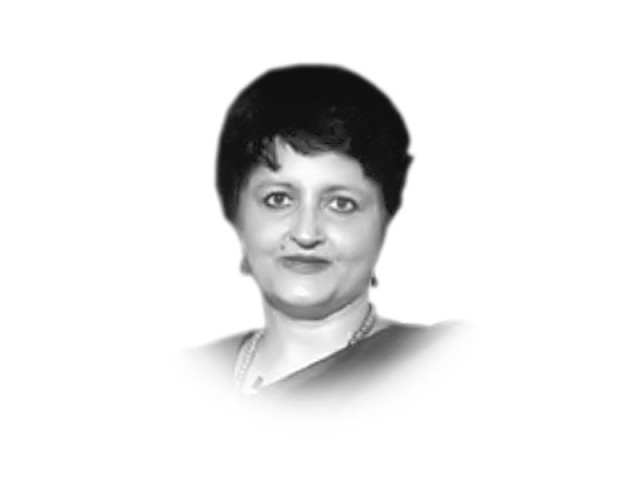India has spoken
India has turned a chapter, or perhaps an entire book, with a new one being written now.

The writer is a consulting editor with The Statesman and writes for several newspapers in India
Speaking to ABC News just now, a question by the interviewer was what would be the reaction of Pakistan to this development. And the response of this writer was that when the BJP-led NDA was in power under then prime minister Atal Behari Vajpayee, Pakistan seemed to be of the view that the BJP in New Delhi and the military in Islamabad were a potent combination, not for disaster, but for delivering peace to the region. And this could well be the thinking across the border even now, with the only uncertainty being what Modi has to say about relations with Pakistan. And whether he will be friendly, or hostile in government.
Modi did raise the issue of Pakistan during the elections towards the end of the campaign. Others told those who did not vote for Modi in India, to go to Pakistan, in a clear signal of animosity. However, this was during a heated and tense campaign, and might not necessarily be part of policy when Modi and his government take over. These are early days yet, and Modi is a dramatic personality, who might just decide to walk an extra kilometre knowing that he has the power and the authority to retrace his steps whenever he chooses to do so. So there could be a period where the new prime minister of India outdoes his erstwhile BJP colleague Vajpayee, and makes a gesture of a visit, or of talks, that the Congress prime minister, Manmohan Singh, was unable to do for many years. At the same time, he could make it clear to the domestic constituency, in the process, that his government is in full control and will not hesitate to pull back, and perhaps even hit out if required, if Pakistan transgresses expectations.
In short, New Delhi’s Pakistan policy will be hard and could well follow the pro-BJP strategic establishment’s constant advice to ensure that India does not hesitate to opt for the hard option (read: hard diplomacy or even military) if and when required. It was many of those who will now be with the NDA in different capacities perhaps, who had advocated a military strike after the terror attack on Mumbai but were not taken on board by the government at the time.
Modi’s is a harder constituency at one level, than the one Vajpayee addressed. His support does not come from the BJP per se but more so from the Rashtriya Swayamsevak Sangh that has managed this election for him. He will need to keep this constituency in good fettle if he wants the space to take hard domestic decisions and here peace could be a casualty at some point in time.
India has turned a chapter, or perhaps an entire book, with a new one being written now. The Nehruvian era is over, and the country has entered an entirely new phase where the nationalist right has come into government through an amazing victory. The opposition has scattered almost completely, except in Tamil Nadu, Orissa and West Bengal where it remains in sufficiently large numbers to take independent decisions. However, the writing on the wall suggests some degree of close cooperation, if not alliance, between Orissa’s Biju Janata Dal and Tamil Nadu’s AIADMK with the new government. West Bengal’s chief minister, Mamata Banerjee, who has done extremely well in these elections might be the only one to resist direct liaison with Modi’s government, and largely because of the overwhelming support she has received from the minorities in her state.
The media is completely supportive because the corporates have signed a blank cheque in favour of Modi. The opposition is looking dismal, with the Congress figures having slumped to an all-time low in parliament. In the first flush of defeat all that the Congress workers could do was raise slogans asking for Priyanka Gandhi to take over the party, in yet another indication of fossilised thinking and total inaction. The Uttar Pradesh and Bihar regional parties have moved into single digit figures, in another signal that the resistance to the BJP in the Hindi heartland has been finally not just subdued but vanquished.
Published in The Express Tribune, May 17th, 2014.
Like Opinion & Editorial on Facebook, follow @ETOpEd on Twitter to receive all updates on all our daily pieces.














COMMENTS
Comments are moderated and generally will be posted if they are on-topic and not abusive.
For more information, please see our Comments FAQ